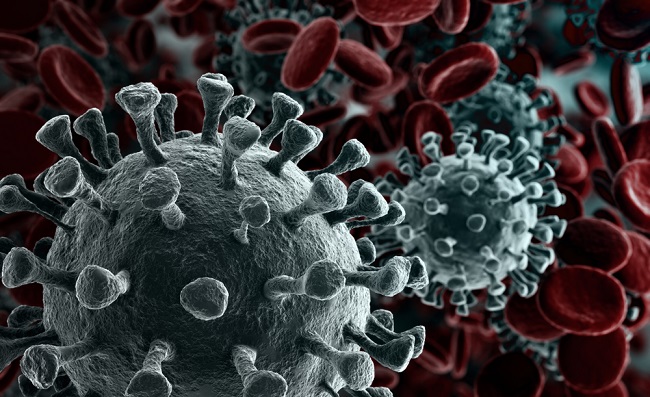People in deprivation with poorer lifestyle factors at most risk for COVID-19
Published: 30 March 2022
Unhealthy lifestyles are associated with a higher risk of severe COVID-19, but risks are highest in the most economically disadvantaged, according to a new study
Unhealthy lifestyles are associated with a higher risk of severe COVID-19, but risks are highest in the most economically disadvantaged, according to a new study.
The research – led by the University of Glasgow and published in BMC Infectious Diseases – looked at 343,850 people with an average age over 60 and found that
the combined influence of both lifestyle and socioeconomic factors further increased the risk of severe disease or death from COVID-19, with participants in the highest deprivation group having a higher risk of adverse COVID-19 outcomes when compared to those in low deprivation.

The study suggests that the greatest public health benefit from lifestyle focussed COVID-19 government policy and health interventions is likely to be seen when the greatest support for healthy living is provided to the most disadvantaged groups.
This is the first study to look at the combined influence of both socio-economic status (level of deprivation) and a wide combination of unhealthy lifestyle factors on the risk of COVID-19 outcomes.
The study found that a higher proportion of participants with the least healthy lifestyle scores died from COVID-19 and had severe COVID-19 compared with those with healthier lifestyle scores. Similarly, there was a higher proportion of participants from more disadvantaged groups (more deprived, lower education, or lower income) that died from COVID-19 and had severe COVID-19 compared with those in more advantaged groups.
Kate O’Donnell, Professor of Primary Care Research and Development at the University’s Institute of Health and Wellbeing, said: “We know that the effects of COVID-19 have been worse for economically deprived and disadvantaged groups for a number of reasons; and our research demonstrates additional COVID-19 risks for those in disadvantaged positions who also report unhealthy lifestyle factors – such as smoking, alcohol consumption, and low physical activity.
“In order to reduce COVID-19 harms in these vulnerable population groups, who are more susceptible to negative outcomes with this disease – and also to mitigate against future pandemics – it’s important that policies and healthy living support are optimised for the people and most disadvantaged groups who need it most.”
Data for the study came from UK Biobank, a biomedical database a research resource containing genetic, lifestyle and health information from half a million UK participants. Of the 343,850 participants with complete data, 707 (0.21%) died from COVID-19 and 2,506 (0.76%) had severe COVID-19. For socio-economic status, the study took account of area-level deprivation, annual household income and maximum education attainment.
For the lifestyle exposure, the researchers used a risk score comprised of nine lifestyle factors: smoking status, alcohol intake, physical activity, television viewing time, sleep duration, fruit and vegetable intake, oily fish intake, and red and processed meat intake.
The paper, ‘The association between a lifestyle score, socioeconomic status, and COVID-19 outcomes within the UK Biobank cohort,’ is published in BMC Infectious Diseases. The work was partly funded by the Medical Research Council (MRC).
Enquiries: ali.howard@glasgow.ac.uk or elizabeth.mcmeekin@glasgow.ac.uk / 0141 330 6557 or 0141 330 4831
First published: 30 March 2022
<< March

